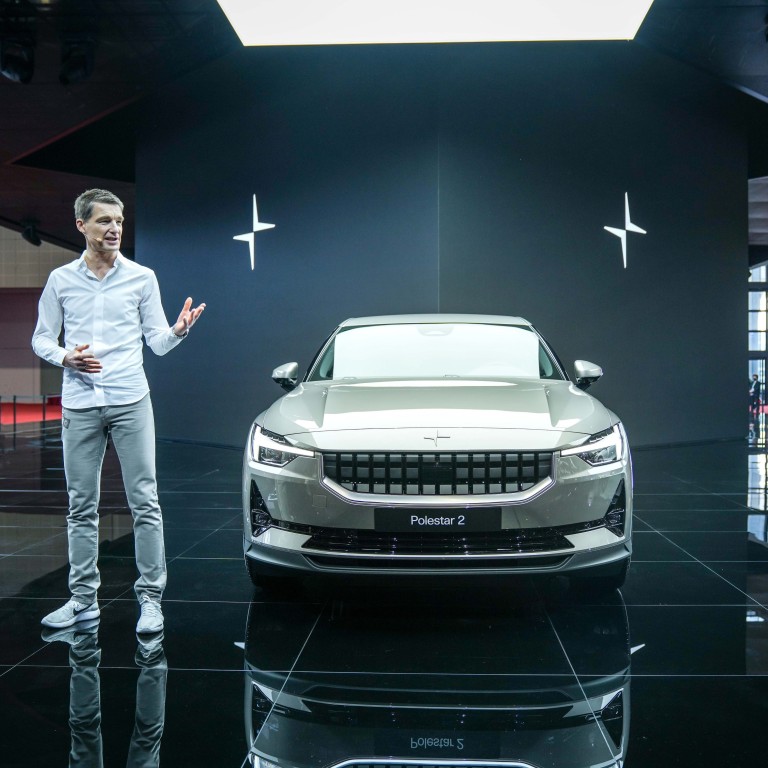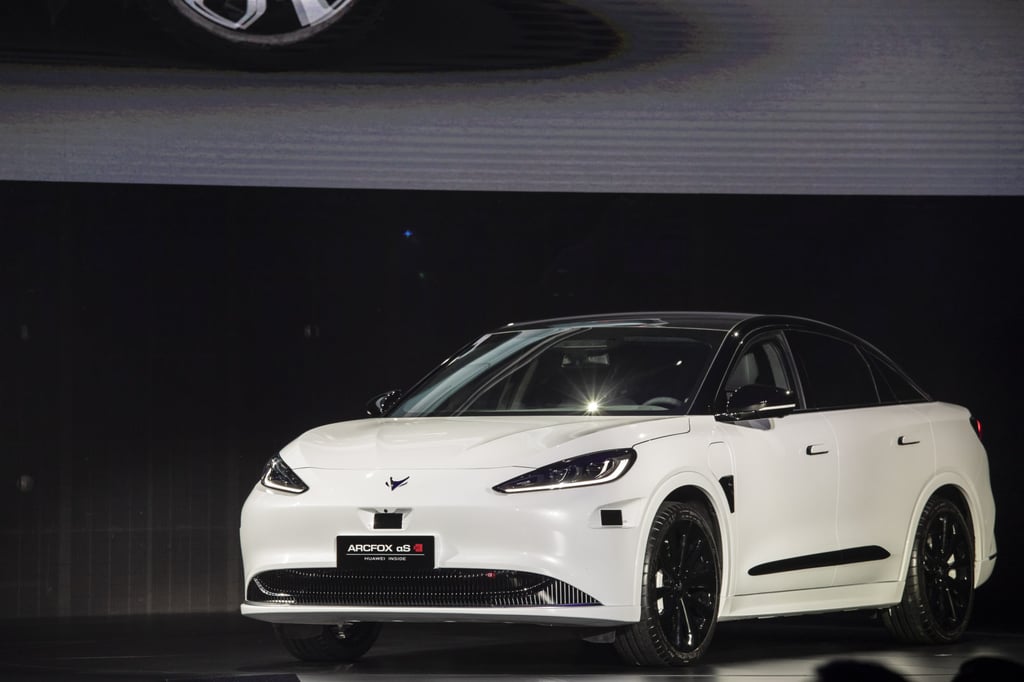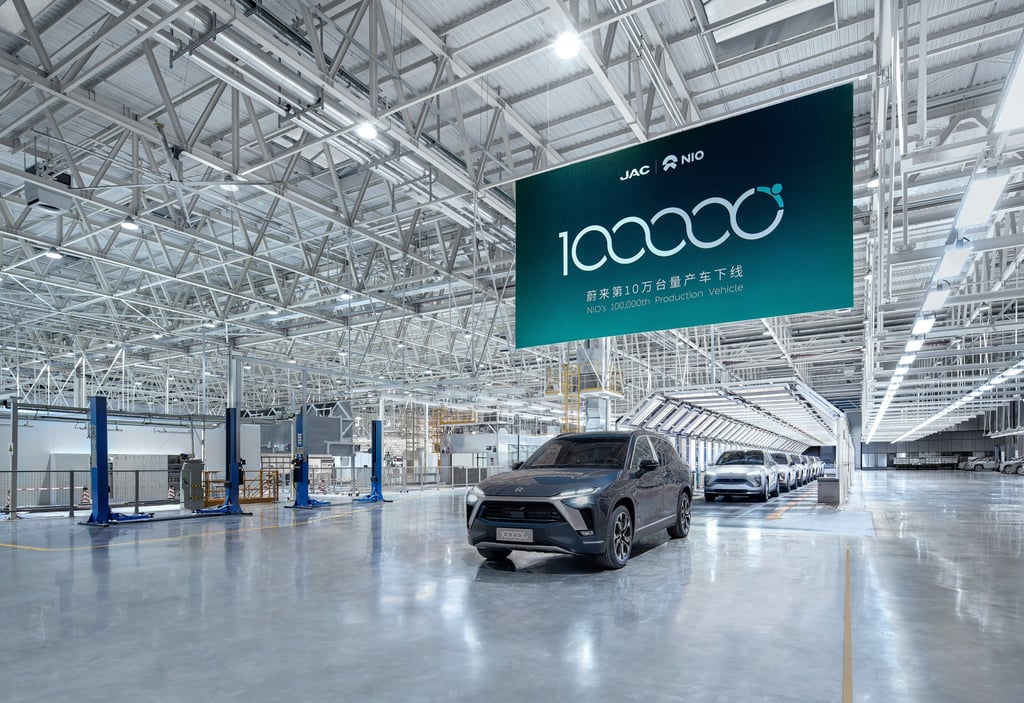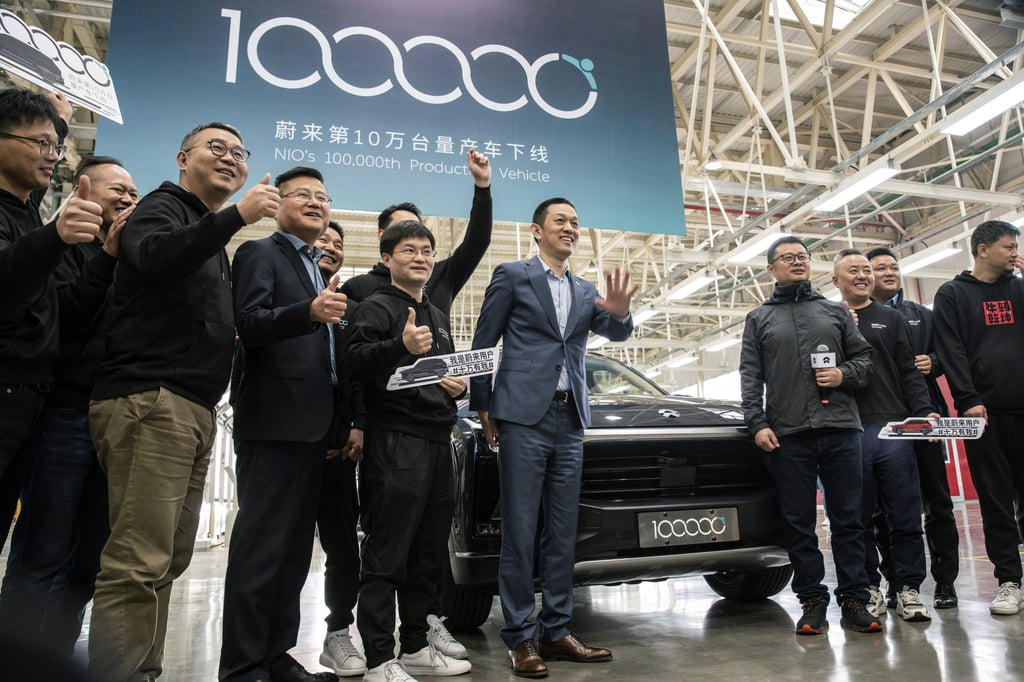Opinion / Auto Shanghai’s Tesla killers: EV launches from Nio, Xpeng and Geely threaten Elon Musk’s crown as AI, lidar and battery swapping tech puts China’s car brands ahead for Gen Z

- Nio, not Rolls-Royce or Bentley, developed Nomi, an in-car voice-controlled assistant complete with a virtual ‘face’
- Tesla’s Elon Musk abandoned battery swapping but Nio CEO, William Li, is building 5,000 stations across China – and thinking global next?
This article is part of Style’s Inside Luxury Column
Whenever I hear people telling me that something will never happen, it’s often appears almost a guarantee that it will come true – and sooner rather than later. Two years ago, before the pandemic, I visited the Geneva Motor Show and wrote an article about the Chinese car company BAIC, one of the five largest Chinese automotive groups, as they debuted the Arcfox brand. They showcased an electric supercar designed by the legendary Walter de Silva, who was instrumental in defining the design language of Audi.

After I published the article, many self-proclaimed luxury and car experts told me that there will be never a successful Chinese car brand with appeal outside China, even less in the luxury space. Some said that only European car companies could ever be successful in the premium and luxury segment. I am not so sure about these statements. It may take some time, but indicators point in another direction.
Nio, for example, is to me one of the most interesting disrupters to watch. The Nio House concept set a new benchmark for the car retail experience, easily surpassing the experiences of most European premium or luxury car brands. It is an experience that puts the customer in the centre, not being the transactional exchange that is the case with so many traditional car makers.

Another of Nio’s innovations is Nomi, a user interface with a voice-controlled assistant complete with a “face” that mimics human facial expressions and is even able to take a selfie upon command. After experiencing it myself in Shanghai, I thought it was a game changer. I would have expected brands like Bentley or Rolls-Royce to come up with such a “butler” feature, not a newcomer like Nio.
